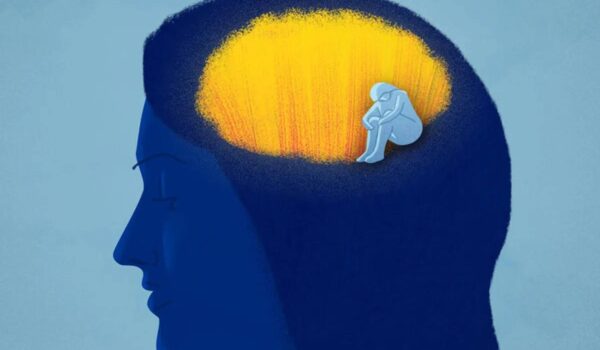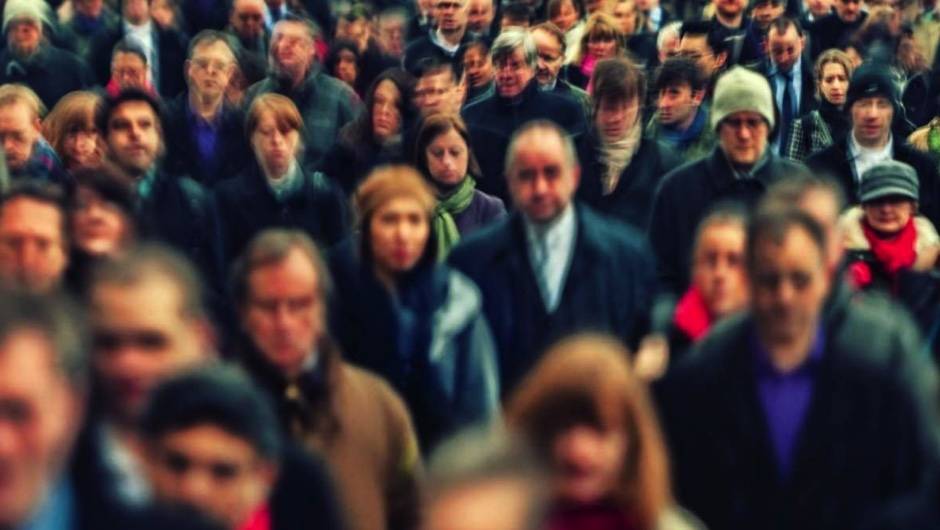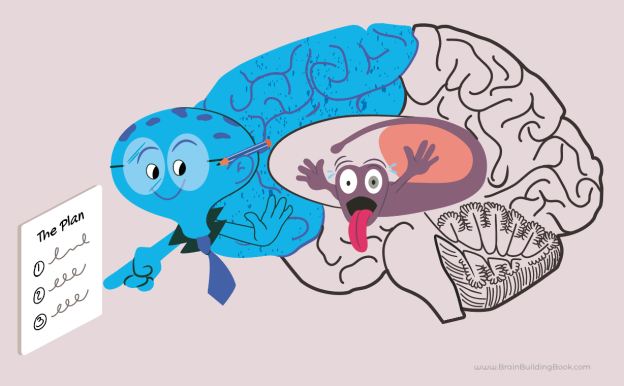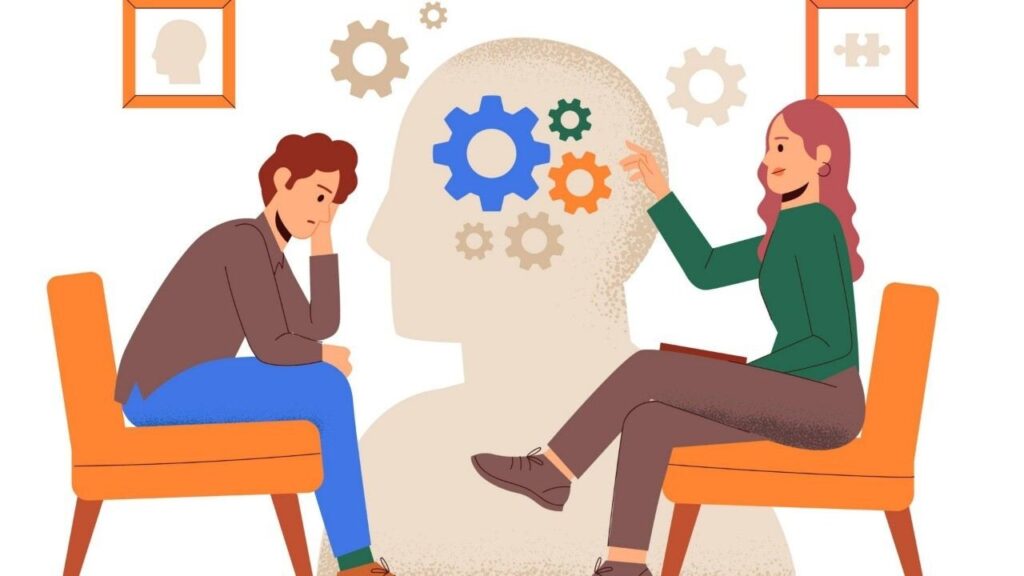Can Loneliness Cause Anxiety?

Loneliness is a profound emotional state that has the potential to affect individuals in numerous ways. It can impact mental health, influence physical well-being, and alter a person’s internal world. A crucial question that emerges in this context is, can loneliness cause anxiety? This article delves into the psychological underpinnings of loneliness and anxiety, examining how the former can contribute to the latter. The article will also address the broader implications of this relationship for mental health.
Understanding Loneliness and Anxiety

To answer the question, can loneliness cause anxiety, we first need to define loneliness and anxiety in psychological terms. Loneliness is the subjective feeling of being isolated or disconnected from meaningful social connections, regardless of the number of people around. It is a deeply personal experience, stemming from a mismatch between an individual’s desired and actual social relationships. Importantly, loneliness is not about being physically alone but rather about feeling alone, even in the presence of others.
Anxiety, on the other hand, is a psychological state characterized by feelings of worry, nervousness, or unease. It can manifest in various forms, including generalized anxiety disorder (GAD), social anxiety, or even panic attacks. Anxiety often arises in response to perceived threats, uncertainty, or stress, leading to emotional and physical symptoms that can significantly impair a person’s quality of life.
Given these definitions, we ask again: can loneliness cause anxiety? The psychological connection between loneliness and anxiety is complex and multifaceted. Researchers have identified several ways in which loneliness may contribute to the onset or worsening of anxiety, making the exploration of this question all the more critical.
The Social Nature of Humans: Why Loneliness Feels Threatening

Why does the question, can loneliness cause anxiety, matter so much? One key reason lies in the inherently social nature of human beings. From an evolutionary standpoint, humans are wired for social connection. Being part of a group historically increased our chances of survival by providing safety, shared resources, and emotional support. Consequently, our brains have evolved to respond negatively to social isolation.
When a person feels lonely, the brain perceives this as a potential threat to well-being, triggering a stress response. This response is similar to how the brain reacts when facing physical danger. The amygdala, the brain’s fear center, becomes more active, heightening the individual’s vigilance and anxiety levels. This heightened anxiety serves as a psychological signal that something is wrong, prompting the person to seek out social connections to alleviate the perceived threat.
However, when loneliness becomes chronic, it can trap individuals in a vicious cycle. As anxiety increases due to loneliness, the person may withdraw further from social interactions, either out of fear of rejection or because heightened anxiety makes it difficult to engage with others. This avoidance behavior reinforces loneliness, leading to a feedback loop that perpetuates both loneliness and anxiety. So, can loneliness cause anxiety? Yes, loneliness can indeed trigger biological and psychological responses closely linked to anxiety.
Cognitive and Emotional Mechanisms: How Loneliness Influences Anxiety
The question, can loneliness cause anxiety, can also be explored by examining the cognitive and emotional mechanisms that link loneliness to anxiety. Loneliness often leads to distorted thinking patterns that fuel anxiety. For example, lonely individuals may develop negative beliefs about themselves and their social worth, such as thinking they are unlovable, inadequate, or fundamentally flawed. These cognitive distortions contribute to excessive worry and rumination—core features of anxiety.
Additionally, loneliness can amplify feelings of uncertainty and unpredictability, two factors strongly associated with anxiety. When people feel isolated, they become hyperaware of their lack of social support, which can lead to a heightened sense of vulnerability. This vulnerability can manifest as generalized anxiety, where individuals become anxious about a wide range of potential threats or challenges, even those that are unlikely to occur.
Emotionally, loneliness often leads to sadness, hopelessness, and despair, which can also contribute to anxiety. When people feel disconnected from others, they may struggle to regulate their emotions effectively, leading to mood swings, irritability, and heightened stress. Over time, this emotional dysregulation can increase the likelihood of developing anxiety disorders, as individuals become more susceptible to feeling overwhelmed by their emotions. Therefore, in addressing the question, can loneliness cause anxiety, we can see that cognitive distortions and emotional dysregulation play a significant role in linking the two.
Social Anxiety and Loneliness: A Reciprocal Relationship
A specific type of anxiety closely linked to loneliness is social anxiety. Social anxiety is characterized by an intense fear of social situations, often driven by concerns about being judged, embarrassed, or rejected by others. Individuals with social anxiety often feel lonely because their fear of social interactions prevents them from forming meaningful connections. This raises another important aspect of the question, can loneliness cause anxiety: Can loneliness exacerbate social anxiety?
The relationship between loneliness and social anxiety is reciprocal. Loneliness can lead to social anxiety by making individuals more fearful of social rejection or failure. Conversely, social anxiety can lead to loneliness by causing individuals to avoid social situations that could alleviate their loneliness. This reciprocal relationship creates a reinforcing cycle where loneliness and social anxiety feed into each other, making it difficult for the individual to break free from either condition.
Psychologically, this cycle can be explained by the concept of social self-efficacy, which refers to a person’s belief in their ability to successfully navigate social interactions. When someone feels lonely, their social self-efficacy tends to decrease, as they lose confidence in their ability to connect with others. This lack of confidence can lead to increased anxiety in social situations, further reducing their likelihood of seeking out social connections. Consequently, loneliness and social anxiety persist, perpetuating the cycle. So, can loneliness cause anxiety? Yes, especially in the form of social anxiety, where the two conditions reinforce each other.
The Role of Neurobiology: How the Brain Links Loneliness and Anxiety

When exploring the question, can loneliness cause anxiety, it is also essential to consider the neurobiological mechanisms that link these emotional states. Research in neuroscience has shown that loneliness can profoundly impact the brain, particularly in areas related to stress and emotion regulation.
One key neurobiological factor connecting loneliness and anxiety is the hypothalamic-pituitary-adrenal (HPA) axis, which governs the body’s stress response. When a person experiences loneliness, the HPA axis becomes activated, leading to the release of stress hormones such as cortisol. Chronic activation of the HPA axis can result in heightened anxiety, as the body remains in a state of constant vigilance and arousal.
Additionally, loneliness has been linked to changes in the brain’s reward system. Social connections are inherently rewarding, and the brain releases dopamine, a feel-good neurotransmitter, during interactions with others. When a person feels lonely, the brain’s reward system becomes dysregulated, leading to a decrease in dopamine activity. This reduction in dopamine can contribute to anhedonia, or the inability to experience pleasure, which is common in both loneliness and anxiety. The lack of positive reinforcement from social interactions can further exacerbate anxiety, as the individual struggles to find joy or meaning in their experiences.
The prefrontal cortex, which is involved in decision-making and emotion regulation, also plays a role in linking loneliness and anxiety. When loneliness is present, the prefrontal cortex may become less active, impairing the individual’s ability to manage emotions and cope with stress. This decreased activity can make it more difficult for the person to break out of negative thinking patterns or regulate their anxiety, leading to a worsening of both loneliness and anxiety symptoms. Thus, from a neurobiological perspective, the answer to the question can loneliness cause anxiety is also yes.
Loneliness in Modern Society: Why Is Anxiety on the Rise?
The question, can loneliness cause anxiety, is increasingly relevant in today’s society, where loneliness is becoming more prevalent. Despite living in a hyper-connected world, many people report feeling lonelier than ever before. This paradox of modern life—where people are constantly connected through technology yet still feel isolated—raises important concerns about the impact of loneliness on mental health.
One contributing factor to the rise in loneliness is the decline of traditional social structures, such as close-knit communities and extended families. As people move away from their hometowns for work or education, they may find it more difficult to form and maintain meaningful social connections. Additionally, the rise of social media has created a culture of comparison, where people often feel inadequate or disconnected from others based on curated images and posts. This sense of disconnection can lead to loneliness, which, as we know, can cause anxiety.
The COVID-19 pandemic has also highlighted the impact of loneliness on mental health. Social distancing measures, lockdowns, and quarantine periods left many people feeling isolated and cut off from their usual support networks. During this time, rates of anxiety and depression surged, suggesting that the lack of social interaction had a significant impact on mental well-being. The pandemic has underscored the importance of social connection for mental health, making the question can loneliness cause anxiety even more pertinent in our current reality.
Interventions and Solutions: Addressing Loneliness and Anxiety

Given the strong connection between loneliness and anxiety, addressing one can often help alleviate the other. Psychologically, interventions that target loneliness can also reduce anxiety, and vice versa. One effective approach is cognitive-behavioral therapy (CBT), which helps individuals identify and challenge negative thought patterns that contribute to both loneliness and anxiety. By reframing thoughts and developing healthier coping strategies, individuals can break the cycle of loneliness and anxiety.
Another important intervention is social skills training, which can help individuals build the confidence and skills they need to form meaningful connections. For people with social anxiety, learning how to navigate social interactions in a safe and supportive environment can reduce both loneliness and anxiety. Group therapy, where individuals can connect with others who share similar experiences, can also be beneficial in reducing feelings of isolation.
At a broader societal level, initiatives that promote community building and social inclusion can help reduce loneliness and its associated mental health risks. For example, community centers, clubs, and social groups can provide opportunities for people to connect with others and form meaningful relationships. Encouraging open conversations about loneliness and mental health can also help reduce the stigma that often prevents individuals from seeking help. These societal changes could further help answer the question, can loneliness cause anxiety, by mitigating the conditions that exacerbate both.
Conclusion: Can Loneliness Cause Anxiety?
In conclusion, the question, can loneliness cause anxiety, can be answered with a definitive yes. Loneliness is not just a fleeting emotional state—it has profound psychological and neurobiological effects that contribute to the development and exacerbation of anxiety. From evolutionary factors to cognitive distortions, from the brain’s stress response to the impact of modern society, loneliness and anxiety are deeply intertwined. Addressing one can often alleviate the other, highlighting the importance of social connection for mental health. By recognizing the link between loneliness and anxiety, individuals and mental health professionals can take steps to break the cycle and promote well-being in an increasingly disconnected world.
